


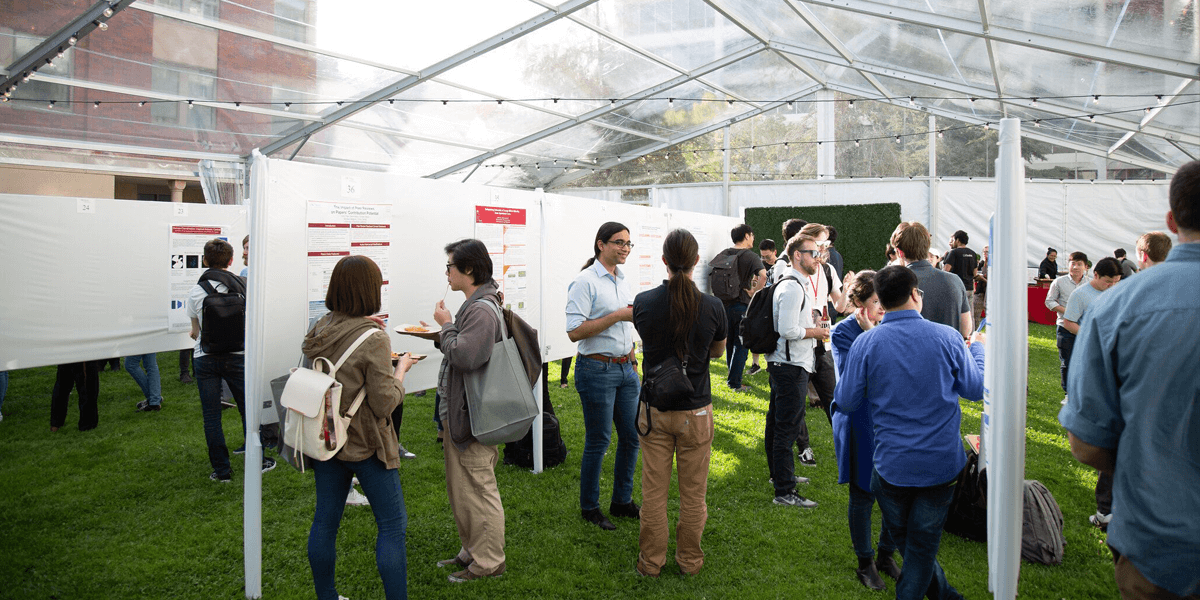
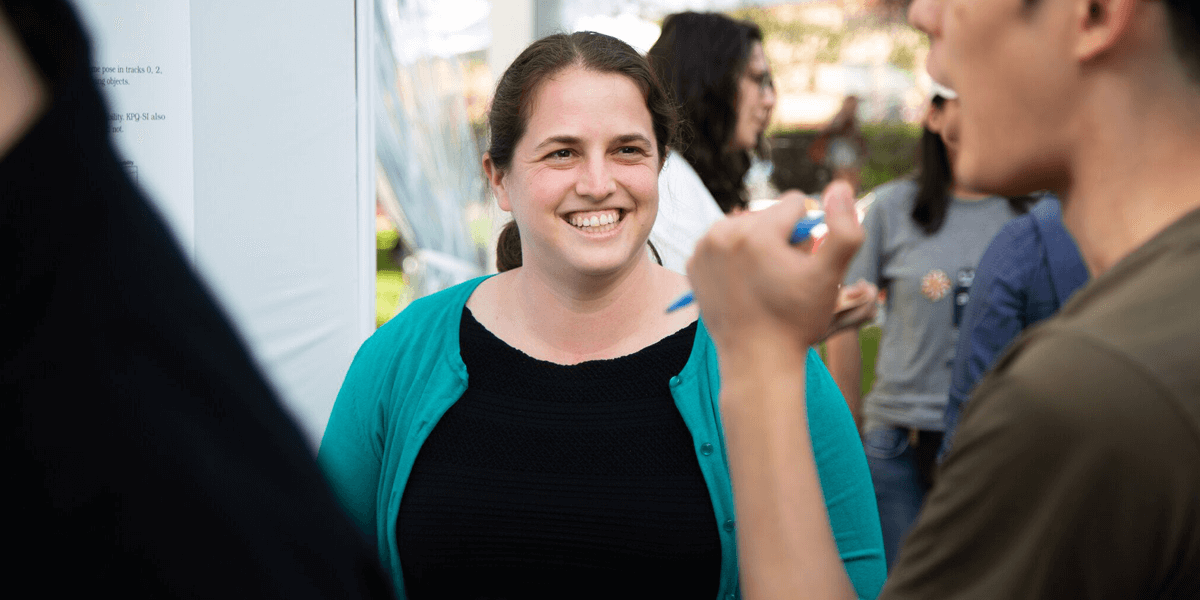
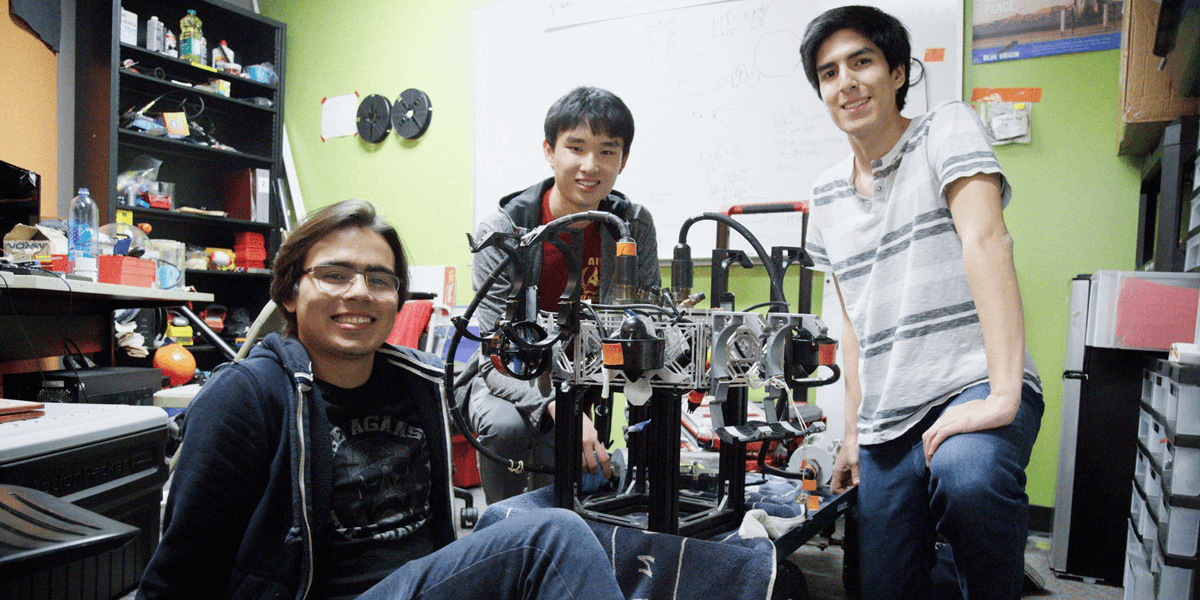

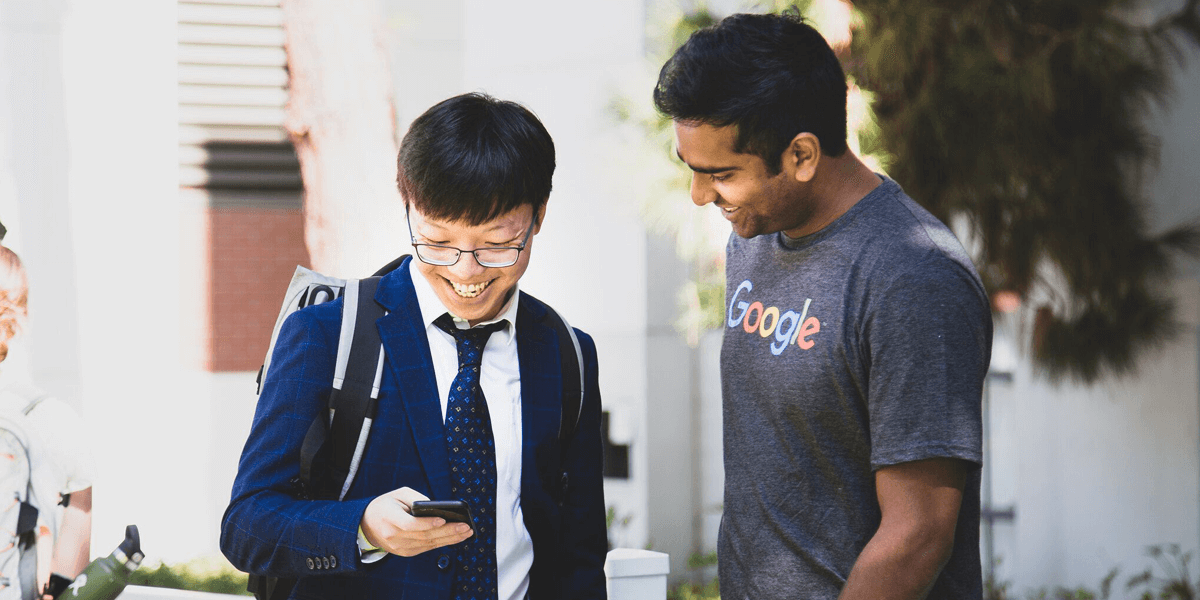
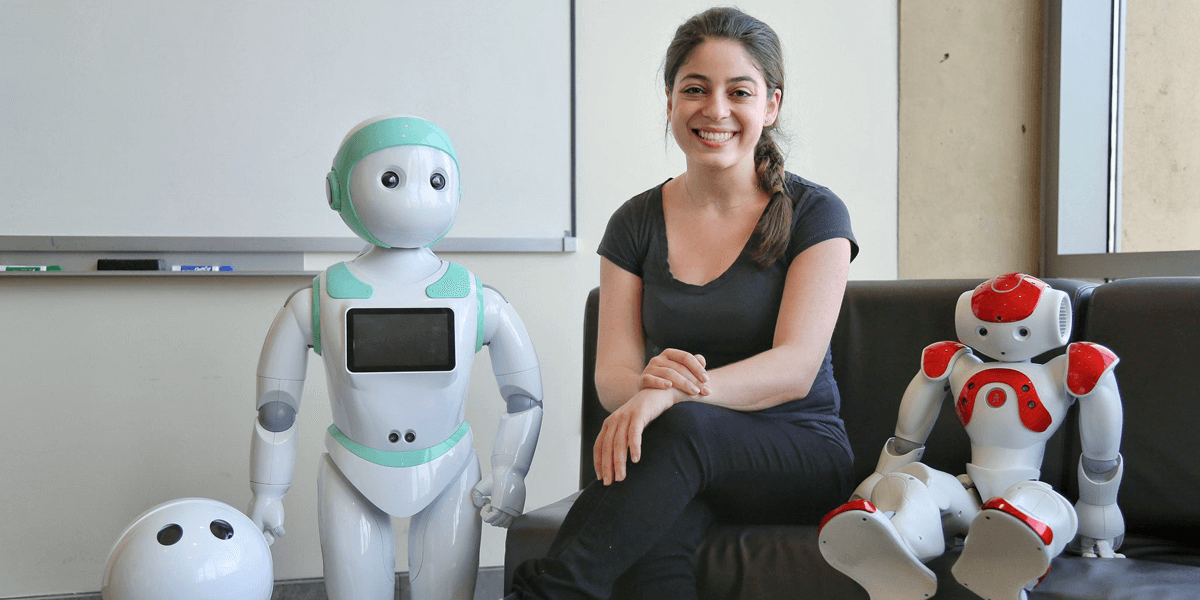
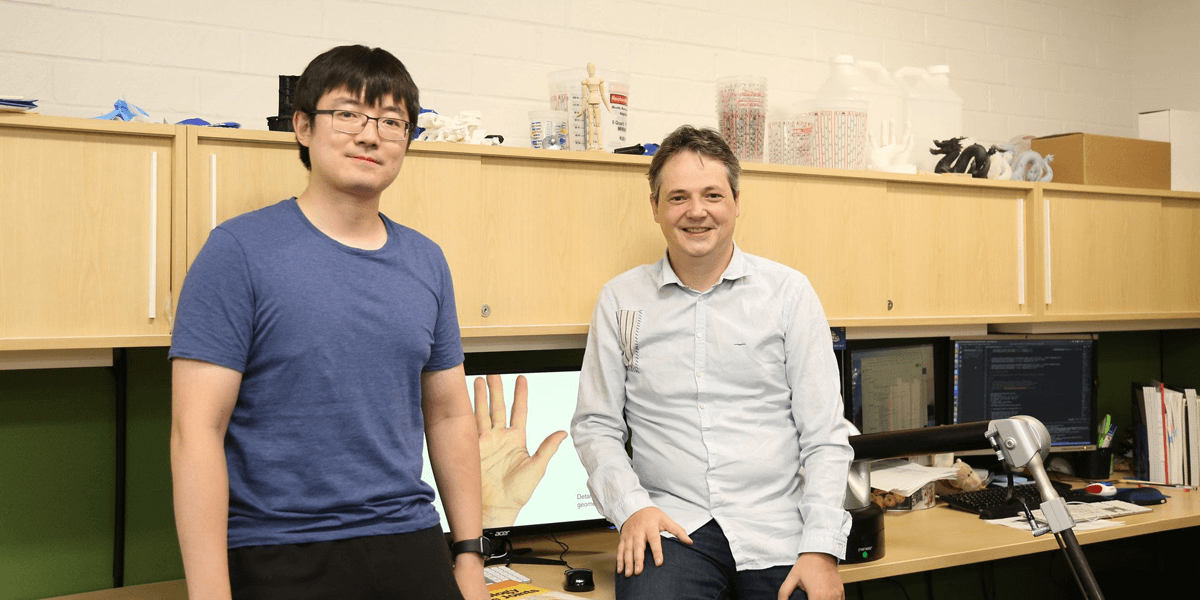
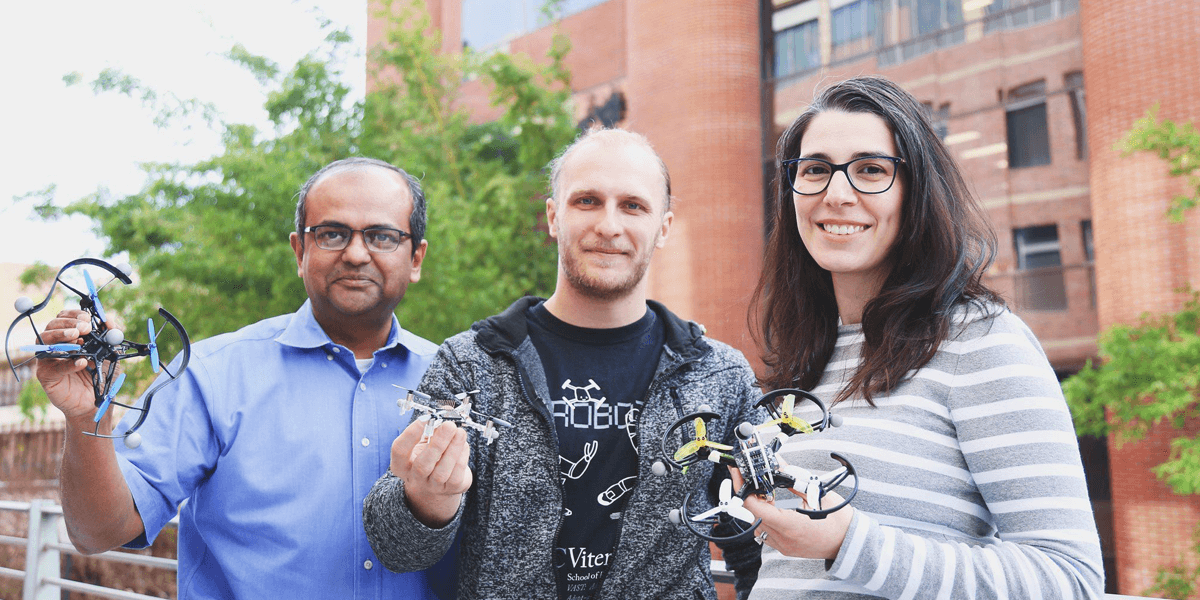
Get connected with a faculty member or program advisor
Since the department's founding in 1968, faculty members have made pioneering contributions to fundamental and interdisciplinary fields of computing. Today, the department is a research and education leader in computation, information, and digital media, offering innovative environments for study and research.
Fact Sheet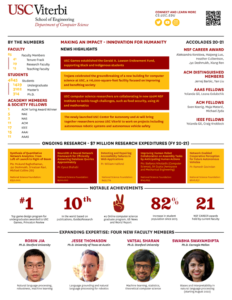
It’s been an exciting year for USC’s Department of Computer Science! See some of our faculty and student highlights, learn more about our new hires and research funding awards in this handy fact sheet.
Research Areas Information & Resources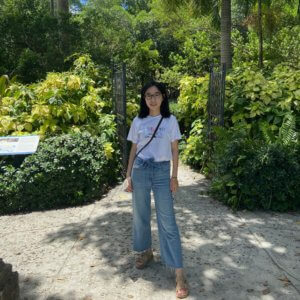
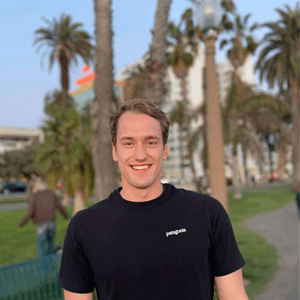
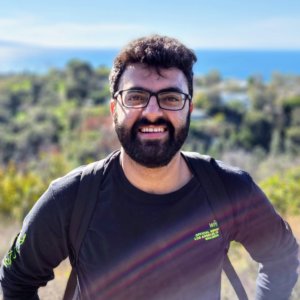
Robotics Interaction Lab
Institute for Creative Technologies

Jingbo Wang
PhD in Computer Science
What’s the best piece of advice you’ve ever been given?
Don’t be discouraged if you fail to accomplish anything in your first year. We all have to get used to the transition from the undergrad to the graduate and sometimes it takes quite a long time to grow up to be an independent researcher. A little more persistence will pay off and lead to a promising future. In my first year, I struggled a lot in my first year. Many things deter me, includin g choosing a research topic, having no idea how to handle problems, and p eer pressure. Fortunately, I have so many friends and lab-mates helping me get through and encourage me to tackle difficulties instead of giving up. Therefore, I also want to encourage new grads to insist on their goals and never get discouraged.
What do you consider your greatest accomplishment?
Giving a great presentation of my work at a prestigious conference. It is really important to share your findings with the rest of the research community and to shed more light on the potential directions. Delivering such a talk is audience-centric, therefore we have to jump out of our own bubbles to get our message come across. In the beginning, I used jargon a lot, resulting in a lot of puzzled looks from my audience. It takes me a while to realize that, less is more. I have to look for simpler ways to explain my idea. Here, I really want to thank Gary Polakovic, as he gives us a lot of suggestions for communication skills. By practicing and sticking with the 3C principle - clear, concise, and consistent, I finally become capable of abstracting my research materials to get my audience understood.
What's your favorite impulse purchase from the past 12 months?
Nintendo switch! During COVID, most of the time, we have to stay at home. Playing some games (e.g. animal crossing) on Nintendo switch is really relaxing
Please describe a little about your research and what excites you about it.
My research focuses on developing rigorous methods and analysis tools for improving the security of software systems. I focus on a class of emerging security threats called side-channel attacks. Recent examples include Meltdown/Spectre, which are side-channel attacks that affect the vast majority of today's computers, thus highlighting their profound social and economical impact. During a side-channel attack, the adversary relies on exploiting statistical dependencies between the secret data (e.g., passwords or encryption keys) and seemingly-unrelated non-functional properties (e.g., power consumption or execution time) of the computer. The ubiquity of the software system and our growing reliance on those systems are leaving us more vulnerable to safety and security threats than ever before. The most exciting part of my research is that all the tools I’m building are trying to provide a shield for the safety of our daily life, and it has been adopted in many cryptographic programs.
If you could choose any other profession outside of engineering or computer science, what would it be?
I think I would like to pursue J.D. or LL.M in law school. For some of the code-based laws, it is well suited to apply formal methods and logic to represent them. Researchers have proposed a default logic to formalize the federal tex code and its accompanying regulations. What I’m currently doing is applying the logic to formalize the behavior of the software. In the future, I wish I could use that to formalize code-based laws, to detect ambiguities and drafting errors.
What are some factors that helped you decide to pursue your PhD at USC?
There are so many reasons:) First, the professor I want to work with is at USC. Second, there are many PL/SE researchers in USC and we could discuss, collaborate in many possible ways. The atmosphere here is really motivating. Third, USC has so many female clubs (e.g. WinCC, WiSE) where we could learn from each other’s experiences and try to encourage more females in the STEM area. Fourth, USC provides many valuable classes such as public speaking, creative thinking, arts performance and etc. It really broadens our horizons in addition to our own expertise. Last but not least, LA is such a special city with palm trees, skateboarding teens, oddball bohemians, and the occasional movie star. You will fall in love with it once you come here.
If you were to recommend to an incoming student 3 places to go in California/Los Angeles, what would they be?
Griffith observatory, Universal Studios, Getty center
What is a memory you'll cherish about your time at USC?
There are so many unforgettable memories at USC. The farmer’s market outside Leavey library, annual conquest rally, birthday celebrations for our lab-mates, and hanging out together in USC Village.
What's one thing about you that might surprise me?
Although I give public presentations in the premier conference and make friends with other researchers, I am a typical introvert and I dislike social activities. When attending the conference, people are expected to interact with each other over few days. To be frank, I enjoy talking with people and introducing my research. However, none of these could compare favorably to solitary. I always spend a lot of time learning and reflecting in solitude. It’s more like a meditation where I could relax and talk with myself.
What are your plans after graduation?
I plan to stay in academia and look for faculty jobs or other research-related jobs.
Hometown (city, country):
Personal Website (if any):
Faculty Advisor: